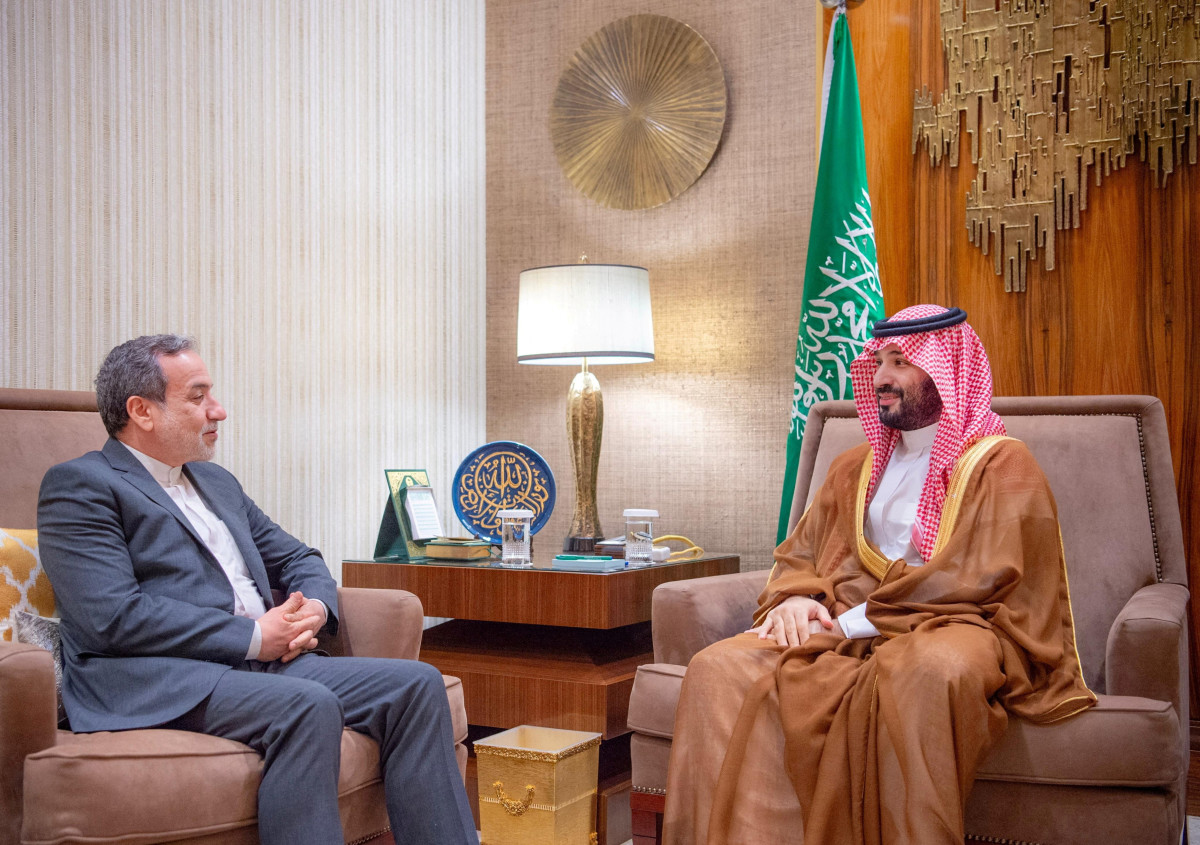As part of their efforts to avoid getting into a conflict, countries like Saudi Arabia, the United Arab Emirates and Qatar refuse to allow Israel to use their airspace for a possible attack on Iran. This position was made clear to the American government in Washington.
The zigzag of the Gulf states threatens to collapse the American defense umbrella Dr. Anat Hochberg-Marom
A surprising rapprochement: this is how the contacts between Netanyahu and Biden regarding Iran look
These steps follow an Iranian diplomatic effort to convince its Sunni neighbors in the Gulf to exert their influence on the United States. Senior Iranian officials told Reuters that Tehran made it clear to Saudi Arabia that it would not be able to guarantee the security of the oil facilities in the region if Israel received any assistance in the attack.
Ali Shihabi, a Saudi analyst close to the royal court, quoted the Iranians as saying: “If the Gulf countries open their airspace to Israel, it will be an act of war.” An Iranian diplomat added that Tehran sent a clear message to the Saudis, according to which its allies in countries such as Iraq or Yemen may respond if there is regional support for Israel against Iran.
The issue was at the center of talks on Wednesday between the Saudi crown prince, Mohammed bin Salman, and the Iranian foreign minister, Abbas Araqchi, who toured the Gulf. The visit of the Iranian minister, along with the communication between Saudi Arabia and the United States at the level of the Ministry of Defense, are part of a coordinated effort to address the crisis.
A Washington official privy to the discussions confirmed to Reuters that officials in the Gulf have been in contact with their American counterparts and expressed concern about the possible scope of Israel’s expected response. However, the White House refused to guarantee that the attack would be measured, even after a conversation between Prime Minister Netanyahu and President Biden.
The fear in Saudi Arabia increased especially in light of the discussion about the possibility that the target of the attack would be the oil facilities. The Iranian threat to the security of the Saudi oil facilities in the event of aid to Israel is a significant factor in the considerations of the countries in the region. The tense situation illustrates the geopolitical complexity in the Gulf region, as the countries of the region try to navigate between their interests, relations with the United States, and the fear of regional escalation.
Prime Minister Benjamin Netanyahu and President of the United States Joe Biden achieved significant progress in a recent telephone conversation. According to a report by Barak Ravid, which relies on three senior American and Israeli officials, the two reached an understanding regarding the scope of the planned Israeli retaliatory action against Iran.
The officials said that the Biden-Netanyahu conversation was the culmination of a series of consultations between the Biden administration and the Israeli government. These consultations took place during the last two weeks and dealt with the scope of the Israeli response to the Iranian missile attack. Following the conversation between the leaders, a senior American stated that the American administration is “a little less concerned” about the expected Israeli reaction against Iran. Another senior American added in a conversation with Ravid: “We are moving in the right direction.”
This development points to significant diplomatic efforts between Israel and the United States to coordinate positions and find a balance in response to the Iranian attack. She also emphasizes the importance the two countries attach to close cooperation on strategic issues in the Middle East. However, the exact details of the understandings reached have not been disclosed, and may become clear in the coming days.

Matters
nnomad | Experiment
NomadKZ's Profile | Nexus Mods
nomad.zombeek.cz
Nomad – JSFiddle – Code Playground
Vista – Perfil – Nomad – Marqueze
Игра Aviator: взлетаем в мир азартных развлечений — Write-A-Blog
Nomad | Hotness Rater Forums
Outdoor Project
Nomad
Портфолио исполнителя «NomadKZ» — Advego.com
Prevencionar | Prevencionar
Nomad | Blog of the APA
nomadkazakhstan.my.cam
Legacy of Dead – nomadkz
Nomad – Open Collective
Nomadの自己紹介 | OPENREC.tv (オープンレック)
Conifer | Nomad (Web archive collection by Nomad)
Обзор игры Big Bass Splash
Home
Ce site internet n’existe pas !
Nomad | Retecool
School Idol Tomodachi – NomadKZ: Profile
Uživatelka nomadkz | SerialZone.cz
NomadKZ
Shining Crown Tickets, October 31, 2024 8:00 AM | Metooo
jso1a654c71.iwopop.top/page54
Profile | Nomad | GoldPoster
Simbi